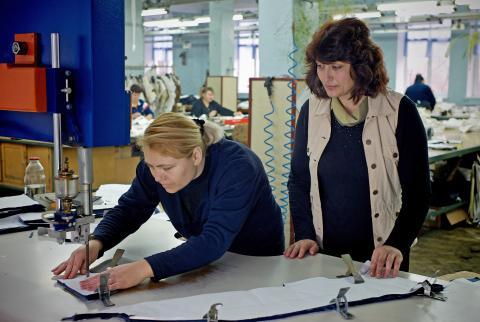
The International Trade Centre will hold a supplementary seminar next month as part of a series of trainings on increasing sales efficiency, aimed at Moldovan SMEs in the apparel sector, organised in the framework of the EU- funded project ‘Eastern Partnership: Ready to Trade – an EU4Business initiative’.
The fourth seminar will take place on February 6-7 on the topic of ‘How to create a commercial collection’, and will be led by Galina Kravchenko from Fashion Consulting Group (Russia). The training sessions will allow the participants from a pilot pool of apparel companies to learn about:
- Assortment strategy and assortment positioning as a reflection of the business marketing strategy (or 'How to express the company's marketing strategy in an assortment').
- Fashion trend as a tool to increase sales, or how to influence sales with the help of fashion trends:
- Constructing fashion forecasting in the international trend-bureau;
- How to choose a commercial trend for the specifics of the company;
- How to interpret the trend.
- The algorithm of the procurement processes:
- Sequence of processes and sample work schedule
- Organising and updating customer information
- Sales analysis and formation of the assortment matrix
- Purchase (selection) of a new collection
- Seasonal purchase adjustment (additional purchase)
- Collection delivery and sales launch
The supplementary training is being organised following numerous requests by the participants in the first three seminars held in 2018, organised with the Centre of Excellence and Acceleration in Design and Technologies “ZIPhouse”.
Eastern Partnership: Ready to Trade - an EU4Business initiative helps small and medium-sized enterprises (SMEs) to access new markets with a focus on the EU, helping SMEs identify and comply with quality and standards to meet international requirements, linking them with buyers along the value chain, and providing cluster support.
